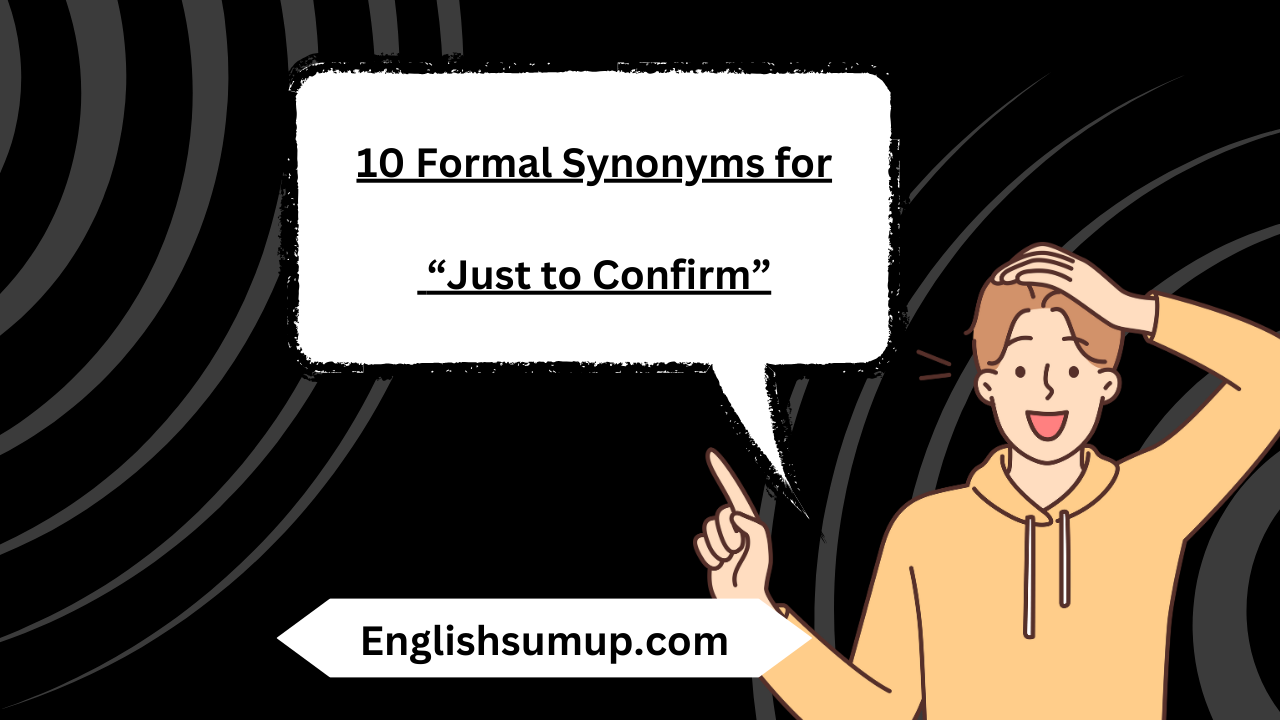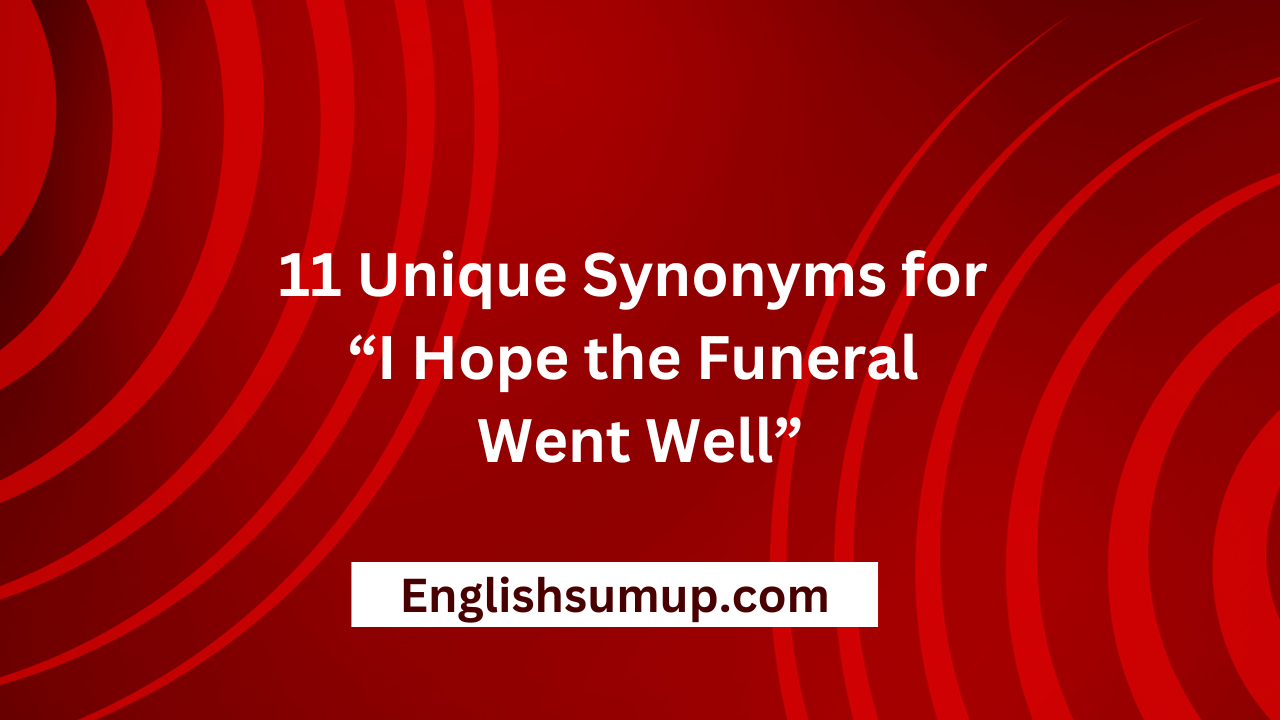Ensuring accuracy through email verification is paramount, particularly when uncertainties arise. While the inclination might be to draft a brief confirmation email employing the phrase “just to confirm,” it’s essential to consider its formality.
Is “Just to Confirm” Formal?

Regrettably, “just to confirm” lacks the requisite formality for professional correspondence, rendering it unsuitable for serious contexts. This phrase is best reserved for casual conversations or when communicating with familiar colleagues.
Nevertheless, it remains a courteous method to validate information with recipients via email or text, indicating a desire to solidify plans before proceeding.
Example Usage:
“Just to confirm with you, are we still on for Monday? I haven’t received any updates.”
Pros:
Exhibits politeness.
Ideal for informal confirmations in friendly exchanges.
Cons:
Inappropriate for professional settings.
Too informal for critical email dialogues.
Given its informal nature, “just to confirm” should be avoided in formal communication. Fortunately, there are numerous alternatives that lend a more professional tone to your correspondence.
Continue reading for alternative phrases to express confirmation formally, accompanied by illustrative examples.
You May Love this One: 20 Alternative Expressions for “I Respect Your Decision”
Here are ten alternative ways to phrase “just to confirm”:

- I would like to verify
- To ensure accuracy
- Could you please confirm
- I wanted to double-check
- May I confirm
- I’m reaching out to confirm
- Could you kindly confirm
- I wanted to make sure
- To validate our understanding
- Can we confirm
I would like to verify
This phrase is a formal request indicating a thorough process of authentication. By using “I would like,” it conveys a polite inquiry while also asserting the sender’s intention to ensure accuracy. This phrase suggests a methodical approach to confirming details and emphasizes the importance of precise information in professional communication.
Subject: Verification Required – {Subject of Confirmation}
Dear John,
I hope this email finds you well. In the interest of maintaining accuracy and clarity, I am writing to request your assistance in verifying {specific details or information}. Given the significance of this matter, your prompt response would be greatly appreciated. Please take a moment to confirm the following {details}.
Thank you for your attention to this request.
Best regards,
Devon
To ensure accuracy
This phrase emphasizes the significance of confirming information for precision. It communicates a commitment to maintaining correctness and reliability in communication. By highlighting the importance of accuracy, this phrase underscores the sender’s dedication to thoroughness and attention to detail.
Subject: Confirmation Needed for Accuracy – {Subject of Confirmation}
Dear John,
I trust this email finds you well. To ensure that our records are precise and up-to-date, I am reaching out to request confirmation on {specific details or information}. Your cooperation in this matter is crucial to maintaining the integrity of our communication. Please take a moment to confirm the following {details}.
Warm regards,
Devon
Could you please confirm
This is a polite and direct request for confirmation, demonstrating respect for the recipient’s time and expertise. By using “Could you please,” the sender acknowledges the recipient’s authority and invites their cooperation in verifying details.
Subject: Request for Confirmation – {Subject of Confirmation}
Dear John,
I hope this email finds you well. Could you please confirm {specific details or information}? Your cooperation in verifying these {details} would be greatly appreciated. Thank you for your prompt attention to this matter.
Sincerely,
Devon
I wanted to double-check
This phrase conveys a sense of thoroughness and responsibility in verifying information. It indicates a proactive approach to ensuring accuracy. By expressing a personal commitment to double-checking details, the sender demonstrates diligence and reliability in their communication.
Subject: Double-Check Requested – {Subject of Confirmation}
Dear John,
I trust you are doing well. I am writing to double-check {specific details or information} to ensure accuracy. Your assistance in confirming these {details} is invaluable. Kindly take a moment to review and confirm.
Thank you for your attention to this matter.
Regards,
Devon
May I confirm
This is a polite inquiry seeking permission to verify information, demonstrating courtesy and respect for the recipient’s authority. By asking for permission to confirm details, the sender acknowledges the recipient’s expertise and invites their collaboration in ensuring accuracy.
Subject: Permission to Confirm – {Subject of Confirmation}
Dear John,
I hope this email finds you well. May I confirm {specific details or information} with you? Your input is crucial to ensuring accuracy, and I would greatly appreciate your assistance in verifying these {details}.
Best regards,
Devon
I’m reaching out to confirm
This phrase signifies proactive communication and demonstrates a commitment to clarity and accuracy in correspondence. By stating “I’m reaching out,” the sender takes ownership of the confirmation process, indicating a proactive and responsible approach to communication.
Subject: Reaching Out for Confirmation – {Subject of Confirmation}
Dear John,
I trust this email finds you well. I’m reaching out to confirm {specific details or information} to ensure clarity and accuracy. Your prompt confirmation of these {details} would be greatly appreciated. Please take a moment to review and confirm.
Warm regards,
Devon
Could you kindly confirm
This phrase combines politeness with a direct request for confirmation. By using “kindly,” the sender adds a courteous tone to the request, demonstrating respect for the recipient’s time and cooperation.
Subject: Kindly Confirm – {Subject of Confirmation}
Dear John,
I hope this email finds you well. Could you kindly confirm {specific details or information}? Your cooperation in verifying these {details} is invaluable. Thank you for your prompt attention to this matter.
Best regards,
Devon
I wanted to make sure
This phrase expresses a personal commitment to ensuring accuracy and completeness in communication. By stating “I wanted to,” the sender takes responsibility for confirming details and demonstrates a proactive approach to communication.
Subject: Ensuring Accuracy – {Subject of Confirmation}
Dear John,
I trust you are doing well. I wanted to make sure {specific details or information} are accurate. Could you please confirm these {details} at your earliest convenience?
Thank you for your cooperation.
Regards,
Devon
To validate our understanding
This phrase emphasizes the collaborative nature of confirmation and underscores the importance of mutual comprehension. By stating “To validate our understanding,” the sender acknowledges the recipient’s role in ensuring clarity and accuracy in communication.
Subject: Request for Validation – {Subject of Confirmation}
Dear John,
I hope this email finds you well. To validate our understanding, could you confirm {specific details or information}? Your confirmation is essential to ensuring that we are aligned on these {details}.
Thank you for your cooperation.
Best regards,
Devon
Can we confirm

This phrase invites collaborative confirmation, emphasizing teamwork and cooperation in ensuring accuracy. By stating “Can we,” the sender invites the recipient to participate in the confirmation process, fostering a sense of shared responsibility.
Subject: Collaboration on Confirmation – {Subject of Confirmation}
Dear John,
I trust this email finds you well. Can we confirm {specific details or information} together? Your input is valued, and your confirmation of these {details} would be greatly appreciated.
Thank you for your collaboration.
Warm regards,
Devon
Conclusion:
Choosing the right words is important when asking for confirmation in professional emails. While “just to confirm” works for casual chats, it’s not formal enough for serious emails.
The other options we’ve talked about are better for formal situations. They show you’re serious and respectful. Whether you’re stressing accuracy, being proactive, or asking for collaboration, these phrases make your email sound professional.
By picking the right words and using a clear email format, you make sure your request for confirmation is taken seriously. It’s all about making sure your message is clear and professional in any work situation.










